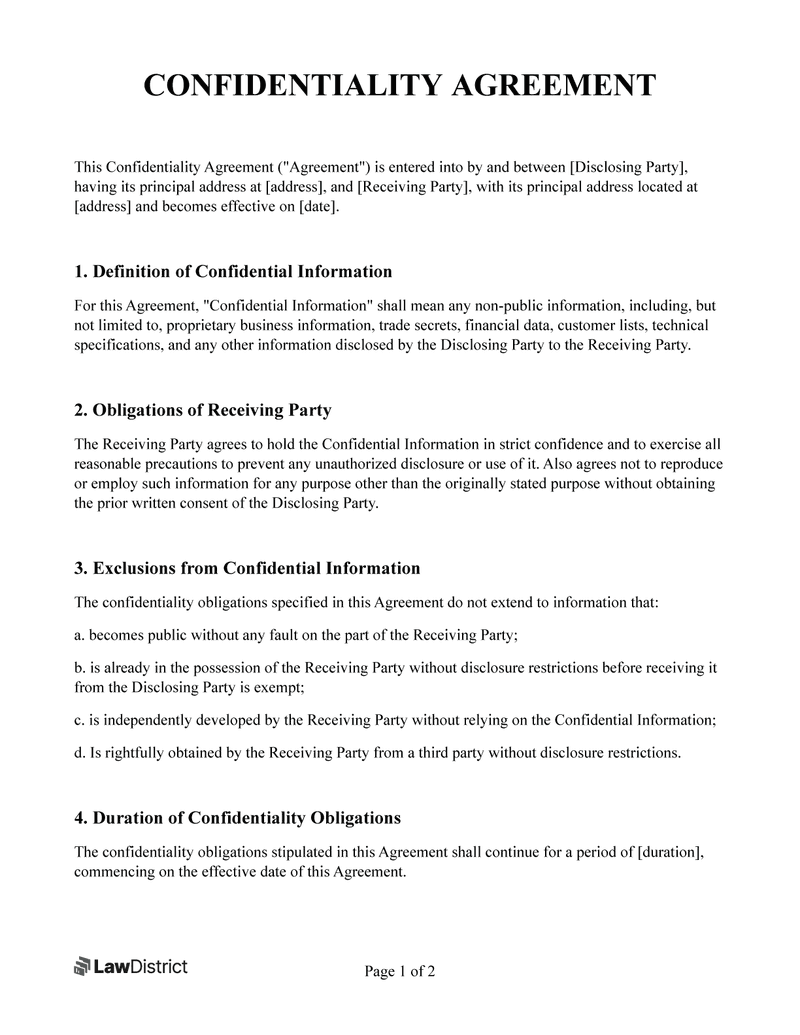Using a Confidentiality Agreement is critical whenever you plan to share classified information. Situations like this can come up at any time.
Typically, it’s used as an important business document when you need to share confidential details of your company with other parties.
Some circumstances when using this agreement can include:
- During and after an audit
- After creating a new product or invention
- Giving an employee a raise
- When signing new employees to an employment contract
- Hiring freelancers
- Interviewing applicants
- Creating a partnership with another business or company
If the other party in the contract releases any of the confidential details, they will face legal consequences.
That is why, by using this document in these cases, you can prevent competitors from getting your business details.
Confidentiality Agreement Protections
Not sure what type of information a Confidentiality Agreement will keep from getting into the wrong hands?
By creating this type of contract, you can make sure the following stays private:
- Details regarding finances: Information regarding your taxes, profits, and losses would stay private.
- Intellectual property: Property such as copyrights and patents will remain confidential.
- Codes: Any original code can be included in a Confidentiality Agreement
- Future products: Plans for a future product can stay in-house.
- Marketing plans: Having your marketing ideas get out means they could be taken from another company, this agreement would prevent that from happening.
